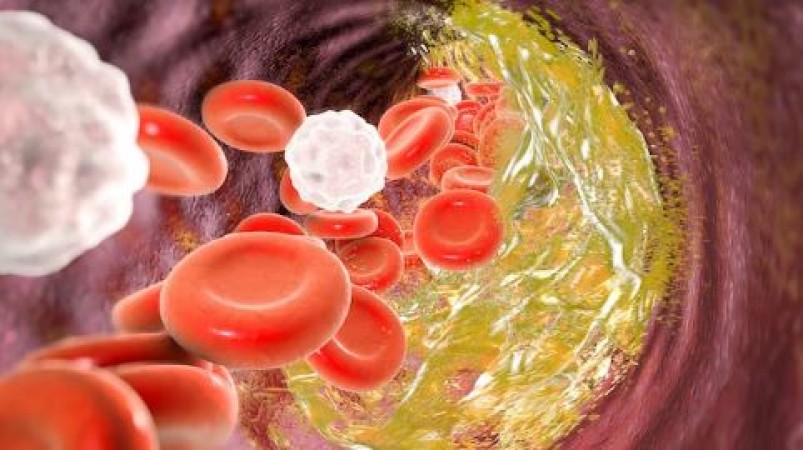
Elevated levels of bad cholesterol, known as Low-Density Lipoprotein (LDL), can lead to the accumulation of plaque in the arteries, which increases the risk of heart disease. While poor diet, lack of exercise, stress, and smoking are commonly recognized contributors to high LDL cholesterol, there's another factor that might be influencing your cholesterol levels: a deficiency in Vitamin B3, also known as niacin.
Understanding the Connection Between Vitamin B3 and Cholesterol
Vitamin B3, or niacin, plays a crucial role in managing cholesterol levels and maintaining cardiovascular health. Here’s how this essential vitamin impacts your cholesterol:
Promotion of Good Cholesterol Production:
Niacin helps transport enzymes to the liver, where they are involved in the production of High-Density Lipoprotein (HDL) cholesterol, commonly referred to as "good cholesterol". HDL cholesterol helps remove excess LDL cholesterol from the blood and transport it to the liver for processing.
Reduction of LDL and Triglycerides:
Niacin is known to lower levels of LDL cholesterol and triglycerides in the blood. It does so by inhibiting the production of these lipids in the liver, which prevents their accumulation in the bloodstream and reduces the risk of arterial plaque formation.
Prevention of Plaque Formation:
By decreasing LDL cholesterol and triglycerides, niacin helps in preventing the buildup of plaque in the arteries. Plaque formation can lead to atherosclerosis, a condition where the arteries become hardened and narrowed, increasing the risk of heart attacks and strokes.
Control of Triglyceride Levels:
Elevated triglyceride levels are a significant risk factor for cardiovascular diseases. Niacin helps in controlling these levels, thus contributing to overall heart health.
Protective Effects on Arteries:
Niacin acts as a protective layer against the effects of bad cholesterol. It helps maintain the elasticity and health of the arterial walls, reducing the risk of cardiovascular events.
How to Address Vitamin B3 Deficiency
If you suspect that your cholesterol levels are high despite maintaining a balanced diet and healthy lifestyle, a deficiency in Vitamin B3 might be a contributing factor. Here’s how you can address this issue:
Incorporate Niacin-Rich Foods:
Chicken: A good source of niacin, chicken can help meet your daily vitamin needs.
Tuna: Rich in niacin, tuna provides a heart-healthy option.
Turkey: Another excellent source of niacin that supports good cholesterol levels.
Mushrooms: These are not only nutritious but also high in niacin.
Brown Rice: Incorporating whole grains like brown rice into your diet can boost your niacin intake.
Peanuts: A tasty way to increase your niacin levels while also providing other essential nutrients.
Consider Niacin Supplements:
If dietary changes alone aren’t sufficient, niacin supplements are available and can help bridge the gap. However, it’s important to consult with a healthcare provider before starting any new supplements to ensure they are appropriate for your individual health needs.
Regular Monitoring and Consultation:
Regular check-ups with your healthcare provider can help monitor your cholesterol levels and ensure that your vitamin levels are within the recommended range. Your doctor can offer personalized advice on managing your cholesterol and overall heart health.
Adopt a Healthy Lifestyle:
Complement your efforts to address vitamin deficiencies with a heart-healthy lifestyle. This includes maintaining a balanced diet, engaging in regular physical activity, managing stress, and avoiding smoking.
Vitamin B3 plays a significant role in managing cholesterol levels and supporting cardiovascular health. Addressing a deficiency in this vitamin can help control bad cholesterol levels, prevent plaque buildup, and reduce the risk of heart-related conditions. By incorporating niacin-rich foods into your diet and considering supplements if needed, you can contribute to better heart health and overall well-being.
Celebrating National Nutrition Week 2024: A Guide to Healthier Eating
How Excessive Consumption of Tea and Coffee Can Be Harmful
Ayush Minister Prataprao Jadhav Opens Delhi Health Expo, Announces National Screening Program